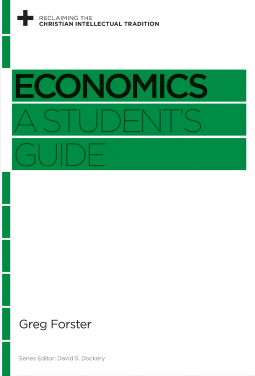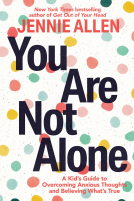
Economics
A Student's Guide
by
This title was previously available on NetGalley and is now archived.
Send NetGalley books directly to your Kindle or Kindle app
1
To read on a Kindle or Kindle app, please add kindle@netgalley.com as an approved email address to receive files in your Amazon account. Click here for step-by-step instructions.
2
Also find your Kindle email address within your Amazon account, and enter it here.
Pub Date Aug 27 2019 | Archive Date Aug 31 2019
Talking about this book? Use #Economics #NetGalley. More hashtag tips!
Description
This book draws on the legacy of the Christian tradition to introduce readers to the study of economics, challenging them to carefully apply biblically rooted economic values. Part of the Reclaiming the Christian Intellectual Tradition series.
A Note From the Publisher
PDF may not be compatible with all reading devices.
Advance Praise
“What’s so great about economics? When we understand economics better, we understand God better, we understand ourselves better, and we understand each other better. But more than that, we begin to grasp how God intends for us to serve him—and each other—in the economic realm. According to Greg Forster, we are participants in the economic realm at every single moment of our lives. Your choices about where to eat or what toothbrush to buy may seem mundane, but Forster wants you to see them as deeply profound. When you begin to see yourself in relation to the created order, as Forster argues that you should, economics becomes no ‘dismal science’; instead it becomes the most hopeful social science there is!”
—Victor V. Claar, BB&T Distinguished Professor of Free Enterprise and Associate Professor of Economics, Florida Gulf Coast University; coauthor, Economics in Christian Perspective
“Forster weaves together a masterful account of economic and intellectual history with a deep understanding of the theological issues facing modern Christians.”
—P. J. Hill, Professor of Economics Emeritus, Wheaton College
“In this short book, Forster accomplishes what far larger economics books fail to achieve, by laying out a theological, moral, and historical foundation for economics. He leaves the technical details to others and instead gives his readers an approachable introduction to human agency, cooperation, and well-being, while also providing a tour through economic and intellectual history. The result is a perfect complement to an economics or business education, or an excellent guide to economics for those in the humanities. I want all my students to read this book.”
—Steven McMullen, Associate Professor of Economics, Hope College; Executive Editor, Faith & Economics
“Each morning we wake up to an economic world, yet we often fail to grasp the wonder, complexities, and challenges of modern free-market economies. Few writers today are more intellectually robust and fairhanded, while also engaging and accessible, than Greg Forster. Forster’s deep grasp of theology as well as economics brings a rare and welcome historical perspective, helping the reader grasp the rich contours of the past and wisely engage the present realities of a free-market economy. Embracing a gospel centricity, Forster rightly asserts that the gospel demands a new economic life and paves the way for more virtuous economic exchange. Forster’s book is a treasure for all who desire a greater grasp of modern economic thought and its integration with Christian theology. I highly recommend it.”
—Tom Nelson, Senior Pastor, Christ Community Church, Kansas City; President, Made to Flourish; author, Work Matters and The Economics of Neighborly Love
“Economics: A Student’s Guide introduces economics to undergraduates in a manner that is faithful to history and Christian theological commitments. Specialization, exchange, the role of money, competition, and economic growth are framed in the light of the scriptural values of justice and mercy. Students are invited into a consideration of how neighborly love is expressed in the marketplace through productive work, compassionate care for the poor, challenges to economic injustice, and encouragement of creativity. Current secular assumptions that incline us to blindly trust the market or political intervention are exposed, and in contrast, God’s vision for restoration of economic harmony is explored. Any student wanting an introduction to how the distinctive wisdom of Scripture informs our view of the economy and the study of economics will surely benefit from this book.”
—Edd Noell, President, Association of Christian Economists; Professor of Economics and Business, Westmont College; coauthor, Reckoning with Markets and Economic Growth
Available Editions
| EDITION | Other Format |
| ISBN | 9781433539237 |
| PRICE | $11.99 (USD) |
| PAGES | 128 |
Average rating from 4 members
Featured Reviews
 David S, Reviewer
David S, Reviewer
The author presents a very nice overview of economics and wastes no words. His look at Homo economicus is is helpful in considering where our current ecomics has lost a moral center. He looks at the historical development of economics from limited access order to open access order and shows how Christianity played major roles in its development. Having read all but two of the books in Resources for Further Study I found this short book to be a good synopsis for reclaiming the Christian intellectual tradition.
 Steve B, Reviewer
Steve B, Reviewer
This book by Greg Forster, director of the Oikonomia Network at the Center for Transformational Churches at Trinity International University, is a welcome addition to Crossway’s Student Guide series.
Here Forster looks at the economy ‘through the lens of the Christian intellectual tradition, seeing these things as the church has seen them in the light of Scripture and the Spirit.’
He begins by differentiating between economics, the academic discipline that studies the economy, and the economy. The economy is more than money and material goods, it involves other economic resources such as time and, surprisingly, reputation.
He is clear that important as it is, life is not just economics.
The Bible does not provide an economic theory, any more than it provides a theory of quantum gravity. What it does is provide premises or presuppositions for economics. Forster contends:
‘According to Scripture we were made to be good stewards of God's world. … The two key concepts of stewardship in Genesis are cultivating and protecting… Thus us where a Christian view of the economy comes in.’
Thus, Forster takes seriously the cultural mandate and the need for development in the creation, where stewardship is a key factor.
In chapter 2 he looks at the role of justice and mercy in terms of integrity, fruitfulness, provision and compassion. He then moves on in Chapters 3-5 to look at Augustine, Aquinas and Luther to see what insights can be gleaned for economics. Surprising is the omission of any discussion of Calvin’s views.
In the final chapter, he notes that the world is dominated by economic ideologies. He makes an excellent point:
‘However, we would be equally naive to think that we can totally repudiate existing systems of economic thought and set up “Christian economics” against them. That is not how the Holy Spirit works. At Pentecost, the people of many nations did not hear the gospel preached in a totally new language. They heard it in their own languages, the existing languages of human culture. God does not remove us from cultural systems—which include systems of economic thinking—when he redeems us.’
He makes a good case that in challenging the idolatries we do so ‘from the position of active and loving participation in the economic life and thinking of our communities’. This echoes the so-called LACE-approach of Andrew Basden. The need to listen and affirm before critiquing idolatries and then enriching (redeeming) the viewpoints,
Areas discussed are the market, political intervention in the markets and the role of the state.
There is a list of further reading, but notable Christian economists such as Bob Goudzwaard and Alan Storkey are surprisingly absent from it.
The book takes seriously the discipline of economics and the economy from a Christian perspective, particularly welcome is the emphasis on stewardship and thus provides a good introduction to the subject.
 Conrade Y, Reviewer
Conrade Y, Reviewer
Christians are called to be good stewards of the world and her resources. Though believers are not of the world, they are still in the world. They have to live with the world systems that are in place. They need to work to make ends meet. They are expected to contribute to the well-being of the earth and the natural resources. Right theology is crucial because it leads to right care of the earth. The secular world often try to separate Christian beliefs from the world. Truth is, this is never possible simply because the world was never created to be secular in the first place. Christians believe that God created heaven and earth; and God had ordained mankind to take care of the earth. Unfortunately, sin had corrupted mankind and this has led to many troubles. In a world of plenty, we still have many swaths of poverty. When we are expected to share, we tend to hoard up resources for self. When we are called to care, we turn the other direction. What we need is a constructive and beneficial understanding of what economics are; what they are supposed to do; and how we are to go about cultivating a flourishing world economy that is anchored on the gospel and the goodness of God.
Forster makes a point to distinguish "economy" from "economics." The latter is the academic discipline that studies the economy. The former is something the author feels is "harder" to define. He says that the ways of graphs, charts, and statistics are simply ways to talk about the economy. What is important is that the economy "focuses on the choices people make about using resources." Once this definition is tied down, we would be able to look at both economics and economy clearer. From here, the author helps us think about the topic in three broad ways:
1) Money and material goods
2) Time
3) Reputation
Narrowly speaking, the economy is simply a "systems of exchange and specialization." Exchange is about buying, selling, and trading. Specialization is about focusing resources on specific ways. From here, Forster helps us see the connections between the use of resources; decision-making with regard to world systems; globalization; politics; governments; religious freedom; morality; etc. A big emphasis in this book is a comparison between economics without God and with God. Economics by itself could be deemed amoral; unspiritual; secular; neutral. Economics in the light of God's Word is connected to stewardship, cultivating, and protecting. These are some expressions of God's love and our calling to love one another. Forster tells the story from the beginning, where God created the heavens and the earth. In the Old Testament, Adam and Eve were tasked with the responsibility to steward the earth. Work is also a key part of stewardship for God Himself worked. It is there not just for the sake of work but for the sake of interaction, relationships, and community. Unfortunately, this vision has been marred by sin, known as the Fall of Mankind. The New Testament shows us the way of Jesus coming to redeem the world, including the world economics. For instance, Jesus bears witness against economic injustice such as poverty, exploitation of the weak, and social marginalization of people groups. The coming of the Holy Spirit at the Pentecost enables us to recontextualize the meaning of God's Spirit on world affairs. The primary themes are justice, mercy, integrity, fruitfulness, provision, and compassion. In other words, economic prosperity is linked to spiritual formation, which in turn leads to human flourishing. In order to enable the coming of the Kingdom of God in the world of economics, we need to understand the historical influence and impact that have derailed God's purposes. Forster devotes three chapters to talk about the ancient crises, the medieval crisis, and the modern crisis. If the Bible had not told us, many people would have thought about colonial economics on the ancient agrarian world. These are about protecting one's turf, deriving maximum benefit, and control. The principle is "limited access" where resources are for the consumption of a few. Subsistence and stability were the overriding concerns. In the Medieval Age, when Christianity was the domineering religion in Europe, economics turn from mere growth and sustenance toward moral philosophies, trade, exchange, commerce. The influence of Aquinas brings about the principle of doing to others what we want others to do to us. This leads to the development of rights, of financial agencies, and the lending development. Unfortunately, economic development also gives rise to a new way toward oppression and slavery. In the New World, or the Modern Era, we see a movement from static to dynamic economics. With the rise of technology and economic development, coupled with globalization, the world is more connected than ever. This works both ways. While this has the potential to enable the whole world to flourish, it could also create world recession.
Forster also highlights some of the "economic idols" we ought to beware of. Idols such as "autonomous market" that we trust too much to take charge of itself. Its "self-correcting" attributes could easily be manipulated by unscrupulous forces. "Political intervention" in the name of good could also become corrupted in the name of evil. The "autonomous state" is also something that we could be placing too much faith in.
My Thoughts
==============
This guide to economics for students is neither about economics per se nor theology. It is about a Christian viewpoint on the economy and world economics. Using Christian intellectual tradition that goes all the way back to the Bible and key Christian thinkers (Augustine, Aquinas, Luther, etc), we learn how to see the world through the lens of Scripture and the Spirit. Chapter One provides an overview of the book and how the topics of economics will be covered. Chapter Two kicks off with a theological foundation. Chapter Three focuses on how Augustine and his contemporaries view economic matters. We learn about the importance to move away from natural economics that focus more on subsistence toward "supernatural" one that enables us to share resources. Chapter Four and Five look at Aquinas's and Luther's perspectives respectively. Chapter Six looks at how the economics of the world had deteriorated and what we can do to help correct the trend.
I like this series that looks at relevant matters in the world and to shine a Christian light on how to think and practice the gospel. I appreciate the warnings Forster have given with regard to the seemingly innocuous aspects of government, economic theory, and social theory, and how they could easily be turned into weapons of economic abuse. If Christians are to be salt and light to the world, they would need to remember the purposes of what salt and light is. Put in the realm of economics, being salt and light essentially means understanding the reason for our existence, to be God's stewards in the world. It means learning to recognize the very idols that had caused Adam and Eve to fall. It means learning to battle sin by living according to the ways of Jesus. Every era has its own challenges, but all eras face the common evil: Sin. Christians can do their part to bring about economic justice, social fairness, and human flourishing by adopting these ways:
- Learning interdependence and to observe the Golden Rule of Jesus
- See the relevance of the gospel in our everday lives
- Working hard toward equal opportunity and fairness for all
- Having a humble outlook with regard to human rights
- Connecting doctrine to the disciplines of world economics
- Seeing the way politics, cultures, theologies, and history influence the world of economics.
Above all, even when we don't have an immediate gospel solution to the challenges and ethics of economics, it is good to keep the gospel in our hearts and to be prepared for the prompting of the Spirit to do something when the time is right.
Author Greg Forster serves as director of the Oikonomia Network at the Center for Transformational Churches. He is also visiting professor of faith and culture at Trinity Graduate School in Chicago.
Rating: 4.25 stars of 5.
conrade
This book has been provided courtesy of Crossway Publishers and NetGalley without requiring a positive review. All opinions offered above are mine unless otherwise stated or implied.
Readers who liked this book also liked:
Harold Earls, IV; Rachel Earls
Biographies & Memoirs, Parenting, Families, Relationships










